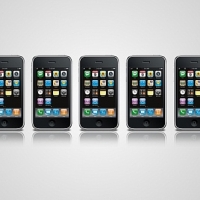How to Keep Big Data on Mobile Devices Secure in 2013

As big data—and the number of employees who have access to it—grow, security is set to be another focus of companies of all sizes in 2013. The adoption of BYOD, or even company-issued devices that have access to sensitive data, creates a challenge far greater than simply tackling “loose lips,” as was done in the past.
InformationWeek recently released a list of the Top 10 IT industry trends for 2013 provided by Hitachi Data Systems CTO Hu Yoshida. The issue of mobile data security came in at number nine.
9. Creating a secure platform for the adoption of mobile devices: The adoption of mobile devices increases productivity and innovation, but it also creates a nightmare for corporate data centers. The year 2013 will see the emergence of secure platforms for data sharing that minimize the security threat of mobile devices and further increase the productivity of mobile workers.
But Leon Rodriguez, director of the United States Office of Civil Rights, points out that it’s rarely the device’s fault. When data is lost or allowed to fall into the wrong hands, it’s generally the fault of the person using the device or, ultimately, the person who failed to train him properly.
Rodriguez recently spoke about this in regard to the growing trend of healthcare professionals using mobile devices to quickly transmit patient data. What once required seemingly endless paperwork is now housed electronically on servers, data centers, and the very devices that staff members have on their person.
The US government has put together an online resource specifically for healthcare professionals to address issues like the importance of preventing mobile devices from becoming lost or stolen and avoiding transmitting sensitive data over public Wi-Fi networks.
Rodriguez also points out the need for medical organizations to adopt “formal privacy or security policies.” Employees simply cannot be expected to follow rules that are not explicitly detailed and established.
Along with protecting the data on mobile devices used by current employees, the absolute need to wipe clean phones and tablets of former employees, especially where BYOD is allowed, is an absolute must.
In alarming numbers BYOD devices are discarded while still loaded with private information—simple yet private texts and emails, saved files, and mobile apps rich with sensitive information. In a recent survey “68 percent of employees said they did not have their devices professionally wiped or securely destroyed when swapping them out for newer technology.”
Remember that mobile devices simply send and receive data. It’s up to device users to keep that information secure, and it’s the responsibility of their supervisors to show them how to do that.
Does your company have a formal policy on mobile device data security? Let us know in the comments section below!

